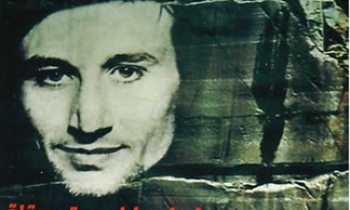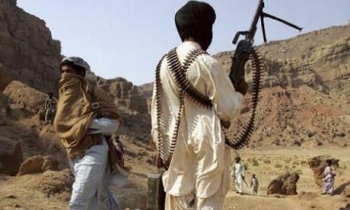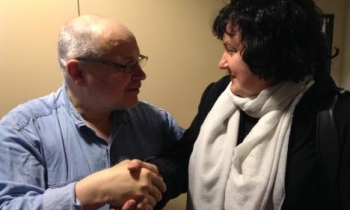As Argentina remembered the March 24, 1976 coup that began Latin America's worst-ever military dictatorship, Reporters sans Frontières (RSF) paid homage to all journalists who fell victim to what the military called 'el proceso,' which continued till 1983. Those who disappeared or were murdered during the final years of the preceding Peronist government (1973-76) were included in the tribute.

"Thirty to forty thousand people lost their lives in this terrible dirty war," a RSF statement said. "We salute the memory of all those – politicians, social workers, trade unionists, civil society activists and ordinary citizens – who were considered subversive by the military regime and who were said to have 'disappeared'."
RSF continued: "We also join in the mourning of the Argentine press, which lost 98 journalists between 1973 and 1980. Although Argentina is one of the few Latin American countries to have brought its leading torturers to justice, many military officers involved in serious human rights abuses never served any sentence thanks to amnesty laws passed by democratic governments."
It added: "Despite the repeal of these laws, justice is far from being done and probably never will be entirely. But Argentine society can count on our support so that the yesterday's 'disappeared' are never forgotten."
The dirty war began before the military coup in 1973, when Juan Domingo Perón began his second and final spell as president. Under his right-hand man, José López Rega, social welfare minister and founder of the Argentine Anti-communist Alliance (the Triple A), it was open season on 'subversives,' especially leftists. Eight journalists were killed from 1973 until the 1976 coup, including Uruguayan parliamentarian Zelmar Michelini, who wrote for the La Opinión and Noticias newspapers.
Isabel Perón, who succeeded her husband as president on his death on July 1, 1974, was finally ousted by Gen Jorge Rafael Videla in the coup of March 24, 1976. Three military juntas occupied the Casa Rosada (the presidential palace) in turn until defeat in the war over the Malvinas (Falklands) in 1982 paved the way for a return to democratic rule a year later.
For the most part, the press went underground during 'el proceso.' Among the many things banned by the military were Antoine de Saint-Exupéry's The Little Prince, the Beatles, modern mathematics, and Greek philosophers. They even tried to ban the tango. Opponents of the regime 'disappeared' – they were kidnapped, tortured and then disposed of, often thrown out of a plane, while drugged but still alive, into the estuary of the River Plate.

Eighty-three journalists 'disappeared' and 15 others were murdered. They include writer Rodolfo Walsh, who helped found the Prensa Latina news agency along with Gabriel GarcÃa Márquez and Jorge Masetti. Walsh disappeared on March 25, 1977. Just over two weeks earlier, Argentine judge Sergio Torres requested that one of Walsh's suspected murderers, former federal police officer Juan Carlos Fotea, be returned to Argentina from Spain, where he was charged with genocide, terrorism and torture by judge Baltasar Garzón in 1998. This extradition request has not yet received an answer. Ten other people, including former naval Capt Alfredo Astiz, are the subject of legal proceedings over their suspected role in Walsh's disappearance.
Two laws absolving the military that were adopted during Raúl Alfonsin's presidency (1983-89) – the Law of 'Punto Final' (1986) and the Law of Due Obedience (1987) – were overturned by Congress in 2003 and by the Supreme Court in 2005. Néstor Kirchner's government now hopes to repeal the amnesties that were adopted during Carlos Menem's presidency (1989-99). RSF says it has learnt that the cases of around 400 military personnel – of whom fewer than 50 are still in active service – could be reopened.









